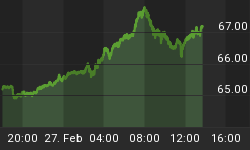
There's a reason why Poland retains the number two slot in our Emerging Europe Fund (EUROX), following Turkey. Ever since the fall of communism in 1989, the country has risen steadily, from a fledgling republic beset by near-bankruptcy, a deteriorating infrastructure and an East-West identity crisis, to emerge as one of the European Union's (EU) most prosperous nations, alongside the U.K., France, Germany and Spain.
The latest issue of The Economist, in fact, asserts that Poland has had its best 25 years in half a millennium, citing its relatively quick market-oriented recovery, decrease in public spending and insistence on keeping its native currency, the flexible zloty, in favor of adopting the euro.
For these reasons and more, Poland was the only country in the EU--of which it's been a member since 2004--to dodge the recession that struck Europe in the late 2000s. More recently, the international sanctions against Russia following its invasion of the Crimean Peninsula have also benefited Poland, as many investors have found it to be a safer, less volatile place for their money.
In a recent interview with VoiceAmerica, U.S. Global Investor's Director of Research John Derrick said:
[Poland is] used as a safe haven in the region: stable economy, stable political environment. It's benefited from the European recovery and doesn't have that much trade with Russia.
Many economists now believe that Poland will eventually join ranks with the top 20 economies in the world, perhaps by as early as 2030. It currently sits at number 22, 23 or 24, depending on the source.
As you can see in the chart below, Poland has consistently outpaced its EU peers in the eurozone for the last 10 years, never once dipping below zero percent growth.

An Eye for Business
Poland has grown in economic strength largely because it offers the EU low-wage yet high-quality labor. Many German companies can get a better production deal from their eastern neighbor than they can from China.
Although Poland doesn't have any internationally recognizable brands, there are a few held in EUROX worth mentioning.
One of the most successful and lucrative companies is Powszechna Kasa Oszczednosci Bank Polski, which translates roughly to "Polish General Savings Bank." With a net income of over $1 billion, PKO Bank Polski, as it's popularly known, is the largest and most highly rated bank not just in Poland but also Central and Eastern Europe. Founded in 1919, the bank is headquartered in Warsaw.

Another Warsaw company in the financial industry is Powszechny Zaklad Ubezpieczen, or PZU Group. With a net income just below $1 billion, it's one of the top insurance groups in Central and Eastern Europe.
ENERGA Group, which rounds out the top three Polish stocks in EUROX, held its initial public offering (IPO) in December of last year. With over 118,000 miles of power lines, ENERGA is one of Poland's leading energy providers, servicing close to 3 million customers. A significant percentage of the power it generates comes from renewable energy sources such as wind, biomass and run-of-the-river hydroelectricity. ENERGA ![]() reported a high return on equity (ROE) in the first quarter of this year, soaring to 10.6 percent, up from 4.4 percent in the same quarter last year.
reported a high return on equity (ROE) in the first quarter of this year, soaring to 10.6 percent, up from 4.4 percent in the same quarter last year.
Always Seeking Growth and Opportunity.

If any country knows how to overcome crushing war and hardship, it's Poland. Having been invaded and antagonized countless times over the centuries by nations such as Russia, Sweden, Austria, Hungary, Turkey and, most notably, Germany, it's had little chance to find its place in the world.
But after 25 years of peace and stability, Poland is finally on a path to great success, ascending more rapidly than any other country in Central or Eastern Europe, with no signs of slowing.
Find out what other holdings we have in our ![]() Emerging Europe Fund (EUROX).
Emerging Europe Fund (EUROX).















